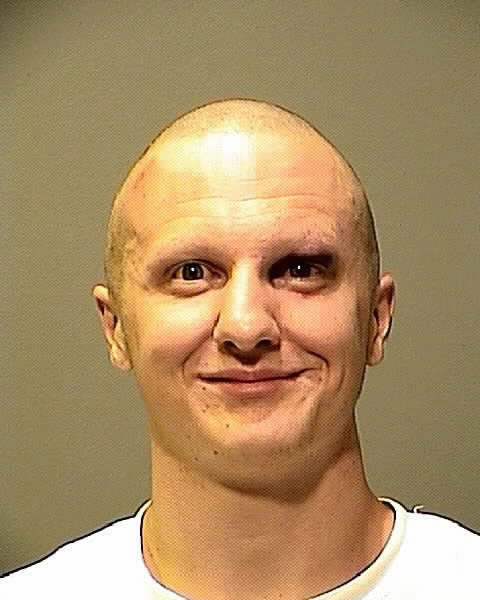Government seeks more time to treat Giffords shooting suspect

Jared Loughner Booking Photo
August 30, 2011
Federal authorities have asked for more time to try to restore accused Tucson shooter Jared Lee Loughner’s mental competency, saying he is currently unable to stand trial.
An order by federal Judge Larry Burns on Tuesday said he will consider the government’s request, citing a doctor’s new report on Loughner’s current mental health.
He has remained incarcerated at a federal prison in Springfield, Mo., since May, after Burns and a federal appeals court said he could be forcibly medicated, over the objections of the suspect and his lawyers. That issue was the subject of a separate court hearing Tuesday in San Francisco.
A letter from the prison warden had requested additional time to “to complete the mental health treatment to determine if there is a substantial probability that the defendant will become competent for trial to proceed.”
Loughner is charged in the rampage shooting January 8 at a shopping center parking lot that left six people dead, including a child and a federal judge. Thirteen others were wounded, including congresswoman Gabrielle Giffords, D-Arizona. Loughner could receive the death penalty if convicted.
Burns said he has asked the Justice Department and Loughner’s legal team for more briefs on whether doctors deserve more time to treat him.
Separately, a federal appeals court heard oral arguments in a related legal question – whether the prison can unilaterally decide whether Loughner needs anti-psychotic medication, or can courts intervene and make the call on such forced treatment.
His lawyers told the three-judge panel in San Francisco that criminal defendants have a constitutional right to refuse mental treatment when the government’s primary goal is to make suspects competent enough to be convicted and possibly sentenced to death. They argued the diagnosis and treatment of prison psychiatrists and staff should be subject to some basic level of court review.
The judges asked tough questions of both sides, but gave no clear indication how they would rule.
Prosecutors argued the drugs were a necessary and emergency step, because Loughner was a danger to himself and prison staff. They said he has made verbal threats, had screaming and crying fits lasting hours, paces his cell endlessly, has physically harmed himself and claims a radio has inserted thoughts into his head.
He has been diagnosed as schizophrenic and put on suicide watch while in custody.
Loughner has also expressed “regret for the circumstances that led to his arrest,” prosecutors wrote in court documents.
When asked whether he had thoughts of harming himself, Loughner said: “I want to die. Give me the injection. Kill me now,” court documents said.
Authorities argue he would continue to deteriorate and could become more dangerous if he continues to refuse the drugs.
Neither the appeals court nor Burns gave an indication when they would rule on the separate matters before them.
The case is U.S. v. Loughner.






